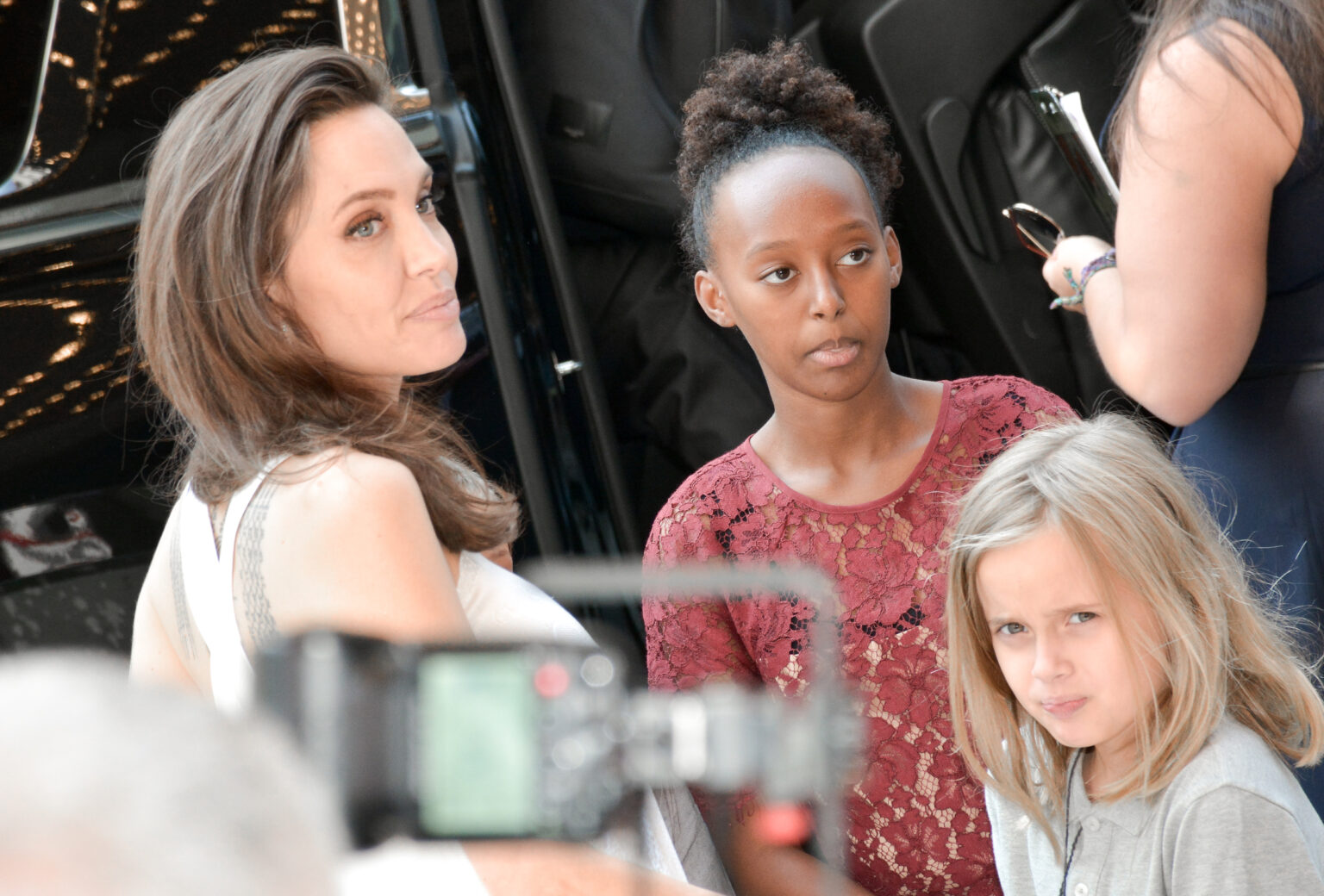|
Listen to Article + Become a member for exclusives 👍🏽
|
Angelina Jolie is invited to the cookout.
Actress Angelina Jolie is making headlines after she was seen commemorating her daughter, Zahara Jolie-Pitt’s admittance to the esteemed Black university — Spelman College.
The adopted daughter of Jolie and fellow actor Brad Pitt, Jolie Pitt, 17, is a recent high school graduate. She will join the Atlanta University Center (AUC) consisting of the four Black colleges in the Southwest: Clark Atlanta University, Spelman College, Morehouse School of Medicine and Morehouse College.
On July 30, the soon-to-be incoming freshman celebrated her moment during the Spelman and Morehouse alumni associations for the ‘Spelhouse’ Back to School Send Off fundraiser in North Hollywood.
Jolie took to Instagram and captioned,
“Zahara with her Spelman sisters!” the proud mama wrote. “Congratulations to all new students starting this year. A very special place and an honor to have a family member as a new Spelman girl.”
View this post on Instagram
Amid her daughter’s celebration, Jolie was captured attempting to do the electric slide. No wedding, birthday party, or function is ever without a line dance in the Black community.
View this post on Instagram
Jolie and Pitt adopted Zahara from Ethiopia in 2005 leading up to her first birthday. In 2021, the Girl, Interrupted, actress, told Essence about the complexities she’s experienced through transracial adoption,
“There’s been so much to learn, so much to absorb. I’m trying to listen,” she said. “I’m raising children of different races and I feel ever since they were little there’s been so much I have to learn from them about their cultures and their races.
She added,
The idea that someone would think that someone is not equal or less than or in any way deserves to be treated with the kind of cruelty that we’ve seen is so ignorant and so horrid. It’s so beyond understanding.”
The 47-year-old isn’t the only parent who adopted outside of their race and endured transracial challenges. If you decide to grow a family through adoption, research is an immediate go-to as to what to look for in a child.
Things such as characteristics and personality traits matter to parents-to-be. However, what should one expect if choosing a transracial path?
During 2005-2007 to 2017-2019, 22 percent of children in foster care found homes at a higher rate in the U.S. Overall, adoptions of foster children in the United States increased by 22 percent from 2005–2007 to 2017–2019.
The latter years demonstrated that less than one-third (28 percent) of adoptions were transracial. 90 percent of the children were adopted by parents of different races, according to the Assistant Secretary of Planning and Evaluation.
According to Adoption Choices of Oklahoma, here are a few tips to consider on your road to parenthood:
- Cultural Development – Adopting children of another race can expand your views on race and expunge any ignorances or misgivings you may have had prior. It creates opportunity to flesh out thinking.
- Discrimination Challenges – On your journey to raising a child outside of your race could give unwanted consequences to your child. Things such as bullying, harrassment and other unforseen scenarios can take place as they enter the world. However, open dialouge about why the child’s heritage is important creates a sense of pride and showmanship and interest to understand.
- Keeping Cultural Expereinces In-House – Creating a space of cultural familiarity can do wonders for your child’s self esteem. Celebrating important historical dates and holidays that pays homage to their heritage not only helps with their acclimization but strengethens your knowledge as well. Additionally, this can snowball into learning about different cultures and teaching your child that the wold is filled with many races and ethnic backgrounds outside of their own heritage. Foster the connection between your child and their heritage is crucial and rewarding.
Pros will always allow a portal of hope. However, for those who still have concerns going into the adoption process. Here are a few things that could negatively affect your child:
- Stating the Obvious – We don’t live in a color-blind world so your child will definitely stand out especially if the skin tone is obvious.
- Cultural Misplacement – One attribute of bullying from others espeically of similiar ethnicities is when the child hasn’t formed an idenity with their own race. Transracial adoption can lead to culturual loss if not managed with education of their origin and assimiliating certain familial adaptions to elevate their confidence.
- Family Acceptance – While your choice for adoption favors your need to love and nurture, it may not resonate with those in your family who don’t undertand. Generational thinkinging can possibly create conflict that you’ll have to learn how to navigate around.
While some adoptees of transracial families can have affected family dynamics, some resort to rediscovering who they are by searching for their biological parents or finding a community to fill in gaps that their adoptive parents were not able to provide.
Whatever you choose, you’re in control. This is a decision for you, your spouse, your partner, or whomever you decide to raise kids with.










